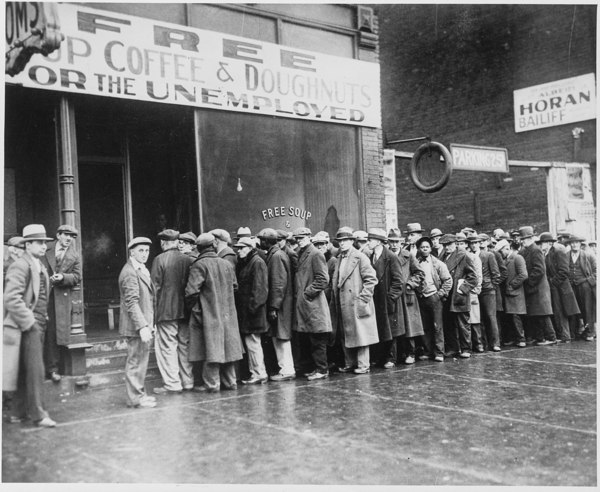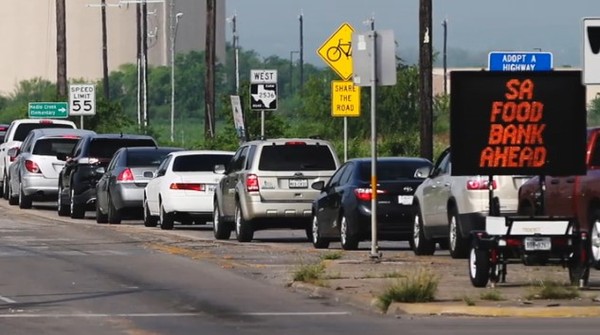
“But princess, the peasants are starving. They have no bread.”
“Then let them eat cake.“
– Marie Antoinette (according to legend)
During the Great Depression, it was common to see long queues of people at food banks and soup kitchens:

Photo courtesy Wikimedia Commons
Compare this with video of people waiting in line for help at a San Antonio, Texas food bank last week.

Video courtesy San Antonio Express-News
Which of these two statements are you more likely to agree with?
a) This is temporary, and the economy is going to bounce back quickly. Any day now!
b) We are in this for the long haul.
If you’re in for option b), then it’s time to start talking about food.
First: You Are Going to Be Fine.
If you’re reading this, you probably fit a certain profile. You have Internet access. You are well educated. You are going to be fine.
No matter what happens in the CoronaCrisis, you are not going to starve. In fact, you might have even packed on a few pounds. (Let’s call this the “Quaran-Ten.”) Your problem isn’t “not enough calories,” it’s “too many calories.”
Most likely, your “food problem” is that you’re trying to eat healthy, stay away from processed foods, and get enough exercise.
No matter your difficulties — and this time is difficult for all of us, in different ways — getting enough food probably isn’t one of them. You may not be able to get your favorite brand of peanut butter, or you may have to limit your egg consumption to 6 per day, but you’re not going to starve.
That’s not the case for everyone.
But: Others are Not.
Many people are, quite literally, starving.
In America, food bank lines are stretching for miles. In Kenya, people are literally stampeding to get essentials like flour and cooking oil. In the slums of Manila, desperate residents are rioting.
That’s the bad news. The good news is: you can help.
There are so many ways to help during the CoronaCrisis that it can seem overwhelming. Where do we start? So like everything during this time, let’s go back to basics. People need to eat.
They have to get freaking food.
It’s hard to find a more fundamental need than food. So: how do we turn our “Anxiety Into Action” and do something positive? How do we help get food on the table?
Organize and Mobilize
We’re a media and communications company. You’re someone who likes to communicate. So let’s say our next big initiative — together — is to organize and mobilize our messaging around local food banks.
Here’s our proposal.
– Let’s get out the message that local food banks need help. This can come from individuals, corporations, churches, synagogues, nonprofits, or individuals like you. Let’s get this out by tweet, text, and talking.
– Let’s identify different ways to help. This might mean volunteering a shift at a local food bank (higher risk). This might mean simply buying an extra case of food and dropping it off (lower risk). Let’s figure out different “risk level” activities, so people can choose the one that feels right.
– Let’s organize and coordinate local volunteers. For example, you might offer to be the point person for your co-workers, your congregation, or your community. You’ll keep a Google Sheet with a schedule, and match volunteers with opportunities. (Project managers: it’s finally your time to shine.)
And if you’re too busy, too lazy, or too afraid to leave the house, then you can always help with the messaging. Tweet #HumansHelpingHumans. Share these ideas with friends. Your voice is stronger than you think.
5 Business Best Practices During the Coronacrisis:
> Think about how your business can help local food banks (everyone needs to eat).
> Focus your marketing message on #HumansHelpingHumans.
> Google “food bank volunteer” to see how you can help today.
> Remember that doing the right thing often involves risk. Consider how much you’re willing to risk for others.
> Spend 10% of your time helping others.